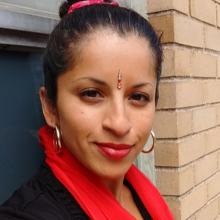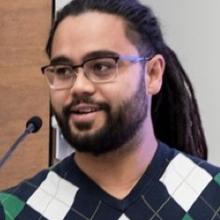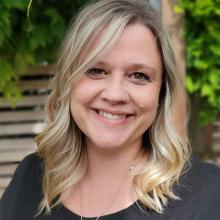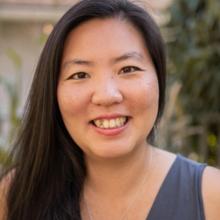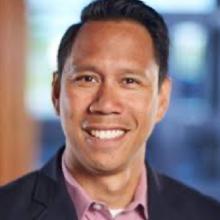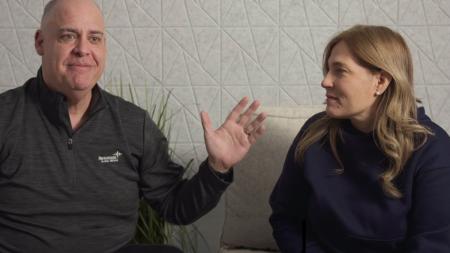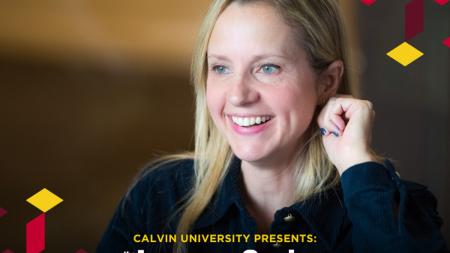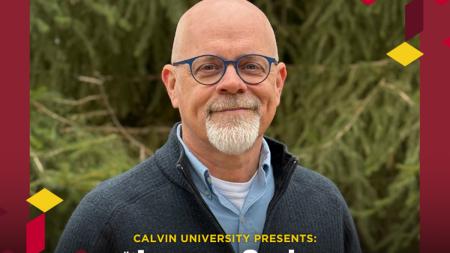Canadian Advisory Committee on Antiracism
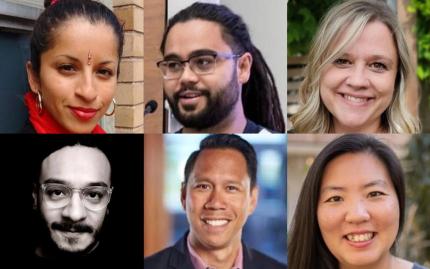
At its October meeting, the CRCNA Canada Corporation appointed seven people to a new committee focused on antiracism and intercultural conciliation in Canada.
The committee members come from various cultural, ethnic, racial, generational, and geographical backgrounds and will each serve a three-year term. They will advise and assist Pablo Kim Sun, who was hired a few months ago to serve in the new position of senior leader for antiracism in Canada.
“I am profoundly honored to be called to this sacred position and looking forward to journeying with you all in the work of antiracism and intercultural conciliation,” Kim Sun said in a Network post soon after his hire.
The advisory committee has been modeled after two similar Canadian committees: the Committee for Contact with the Government (CCG), which advises the Centre for Public Dialogue; and the Canadian Indigenous Ministries Committee (CIMC), which advises the work of Indigenous Ministry in the CRCNA in Canada.
All three of these committees are composed of CRCNA members from across the country who volunteer their time and expertise to shape the ministry of the denomination, offer their support to CRCNA staff members, and serve as liaisons with local congregations.
The new National Antiracism and Intercultural Conciliation Advisory Committee will meet four times per year (twice in person and twice by videoconference). Their first order of business will be to develop and propose a mandate for antiracism and intercultural conciliation for the CRC within Canada that includes internal culture change, institutional accountability to articulated commitments, and congregational mobilization. The committee will also draft and implement corresponding action plans to move this mandate forward.
“I’m very excited to see this committee come together in this way, and I look forward to the prophetic voice that they and Pablo will provide to the CRCNA in Canada,” said Mike Hogeterp, director of the Centre for Public Dialogue.
Kim Sun agreed. He said, “The people named to this committee represent a broad range of ethnicities and experiences. In my initial conversations with them, I’ve felt in them a passion for the church and a commitment to fostering the type of diversity and unity within our church that God intends. I’m excited to work alongside them.”
The following people have been named to the committee.
Priya Andrade (Halifax, N.S)
Priya Andrade is a Goan-Canadian who immigrated to Canada from Dubai. Her career has included working with preschoolers as a home daycare provider, being an art educator, and teaching English as an additional language in several immigrant communities. She has also served on the Canadian Indigenous Ministries Committee since 2017 and recently took on a role as interim justice and reconciliation mobilizer for the committee.
“Creating spaces for BIPOC [Black, Indigenous, and People of Color] people on reconciliation journeys in CRC communities is a growing priority,” she said. “I see serving on this national antiracism committee as an extension of my current work and personal choices to serve in community building within the CRC.”
Driven by the belief that church inclusion is for everyone from everywhere, regardless of the dominant culture present in the CRC, Andrade says she seeks to be part of the collective work of dismantling “membership club-like” spaces.
“My background as an immigrant who lived as a lifelong expat in Dubai labeled as a second-class citizen, and then growing up as a young adult in a Canada that preached equality for all, drives my involvement in social justice. Coming from an ancient Indian culture that still deeply embodies the legacy of Portuguese and British colonization, coupled with refugee experiences via the East-African Indian diaspora, I try hard to resist our culturally embedded chase for proximity to whiteness,” she explained. “I hope that by serving on this committee, I can work alongside like-minded people in seeking ways to create inclusion so that we all benefit from the rich tapestry of interdependence in our shared humanity.”
Jeremiah Damir Bašurić (Edmonton, Alta.)
Jeremiah Damir Bašurić is a commissioned pastor at mosaicHouse Church, a multicultural Christian Reformed church plant in Edmonton. He is also a chaplain at an inner-city organization called The Mustard Seed.
At The Mustard Seed, Bašurić educates the wider public on justice issues such as poverty and homelessness. He is currently completing a master of divinity degree at Taylor/Kairos Seminary and has studied environmental studies at The King’s University.
From his Croatian father, Bašurić has developed a love for soccer. From his Filipino mother, he has developed a love for singing. When he is not eating Filipino food or playing music, you can find him hiking in the mountains with his Canadian-Dutch-Frisian wife, Sarah, who is a registered nurse.
“After prayer and discernment, I am very interested in joining the National Antiracism and Intercultural Conciliation Advisory Committee,” Bašurić said. “I believe in the mission of antiracism and intercultural conciliation within the CRCNA, and I wish to join in the restoring work of the Holy Spirit, who is present among us. I am very blessed to have been brought up in a multicultural home. I hope the cultural treasures I have been given through my family, along with my current studies focusing on postcolonial theology, will be an asset to this committee.”
Jessica Boy (Nanaimo, B.C.)
Born and raised in western Canada, Jessica Boy spent her childhood with one foot in central Alberta and another on Vancouver Island, British Columbia. At age 17, she was selected to participate in a 12-month international youth exchange program to Germany, sparking a love for intercultural engagement as a Canadian ambassador.
In the early 2000s, she married, had children, and settled in a community on the west coast in Nuu Chah Nulth territory. She said, “I found myself compelled to live out the verse to ‘love God and love my neighbor as myself.’ My eyes were opened to the gaping divide between my Indigenous neighbors' life stories and those of the average Canadian. With that, I sought out and trained as a lay counselor specializing in issues faced in remote Indigeneous communities.”
Boy and her family became local independent missionaries for six years. During that time, she lived and worked at the intersection of Christianity and Indigeneous community life as a program developer, facilitator, and counselor with families and individuals seeking healing and reconciliation and as a hospitality coordinator for church mission teams.
In 2016, Boy joined Resonate Global Mission as its Canadian placement advisor and recently also began serving as Resonate’s western Canadian regional network connector.
“I have served on Resonate’s antiracism team since 2017 and have joined and contributed to other initiatives that deal with reconciliation and intercultural engagement, including international endeavors that give insight into global church affairs as they relate to the Christian Reformed Church,” she said.
With her past experience and continued interest in global and local reconciliation and antiracism efforts, she hopes that her voice might contribute to the ongoing development and growth of the CRCNA in Canada’s antiracism team.
“It is imperative that [CRC members] recognize themselves on the global smorgasbord of ethnically diverse cultures seeking biblical reconciliation in a rapidly changing world. My unique experiences both within and outside of the CRC can help provide a lens and language to work with church members as they step into this holy calling,” she said.
Trixie Ling (Vancouver, B.C.)
Trixie Ling is a Taiwanese immigrant who is passionate about creating intercultural spaces and opportunities to learn together, break down barriers, and build bridges between cultures through food, stories, and friendships.
As a social entrepreneur, she founded Flavours of Hope, a nonprofit social enterprise that envisions a society where refugee, newcomer women flourish and experience belonging in the community through cooking, storytelling, and entrepreneurship.
“I have the privilege and opportunity to cohost a podcast, Resetting the Table, with two East Asian friends to explore the intersection of race, place, and faith in the pursuit of collective liberation,” she said. “We use our podcast platform to invite more BIPOC voices to speak their truth and share their lived experiences and stories.”
Ling said she is on a journey of discovering her identities, growing in faith, deconstructing white supremacy, and dismantling oppressive structures and systems.
She hopes to contribute her ideas, perspectives, and experiences of being a woman of color in the CRC denomination to help the CRCNA toward systemic change for justice and liberation in its churches and communities.
Sebastian Maldonado (Toronto, Ont.)
Born in Bogotá, Colombia, and based in Toronto, Sebastian Maldonado has worked as a program coordinator, youth leader, and visual artist with a number of interfaith organizations and community-based projects within the nonprofit sector in the city of Toronto.
After completing his studies in philosophy and theology, he joined the team of campus ministers at LOGOS Community, a ministry of the CRCNA at York University and the nearby Jane-Finch corridor in Toronto. Both his academic and community work have focused on mentoring young leaders of color, dismantling colonial patterns of thinking within Christian youth programs, and offering disadvantaged youth theological tools to encourage personal and community transformation.
“Prior to joining the CRCNA campus ministry team at York University, I had the opportunity of participating in a number of projects where I helped develop initiatives that attempted to increase the participation of local BIPOC youth in the transformation of low-income communities in Toronto,” he said.
“This experience, together with research for my studies, has allowed me to focus on issues of social inequality and community building among diverse populations, always paying attention to strategies that will lay the foundations for an integral and transformative social analysis and pedagogy. This academic and professional background has given me important insights for exploring ways in which racial discrimination and inequities experienced by racialized people within the CRCNA manifest, how they present challenges and barriers for congregations, and how they can be addressed.”
Ron Masengi (Burlington, Ont.)
Ron Masengi is Asian Canadian. His parents were born in Indonesia and immigrated to Canada, where he was born. He was raised in the CRC and has attended Christian schools throughout his life.
Masengi is currently employed at King's Christian Collegiate (Oakville, Ont.), where he serves as vice principal of Christian leadership, as a grade-9 guidance counselor, and as a grade-11 Bible class teacher.
“Being a member of the CRC my whole life and being involved in Christian education as a person of color has allowed me a perspective on our Christian community that many of my peers, colleagues, friends, and community members do not have,” he said about his excitement to serve in this way.
“I can envision a church that really represents the kingdom of God in the richness of diversity. I would love to see the church move away from saying ‘I don't see color in the church,’ to ‘I love seeing the color in the church!’ I am especially excited about the support I have heard of from white dominant community members, stating that they realize this is their time to listen and hear how we can grow together.”
Helen Y (Edmonton, Alta.)
Helen Y is a second-generation Chinese Canadian. Her parents immigrated from Macao, a former Portuguese colony near Hong Kong that transferred to China in 1999.
“I strive to weave narratives of social and environmental justice into my life work,” she explained. “What interested me about joining the National Antiracism and Intercultural Conciliation Advisory Committee is the opportunity to have meaningful, intentional, and actionable conversations around creating a more understanding, empathetic, and embracing church body that recognizes God’s goodness in differences.”
Y said that she struggled with her identity as a Chinese-Canadian believer, never quite being able to see how the threads of each aspect of her identity tied together with her faith.
“In 2016, when I went to visit Macao,” she said, she saw for the first time a depiction of Jesus as Chinese, and that made a powerful impression on her. She explained, “That experience really stuck with me and made me reflect on the spaces in church that felt exclusive, foreign, and like a ‘melting pot.’ I am continually learning about what it means to actively create equitable, diverse, and inclusive spaces both in my work and in my personal life, so I hope to bring my learnings to these meetings.”
All of the committee members have expressed that they are eager to listen and learn from each other. Along the way, they hope to explore the richness of God through each other and to help guide conversations toward creating inclusive spaces where church culture matches the gospel.
They ask that everyone in the CRC keep them and the work of the committee in prayer.
“Please pray for wisdom, salty words, and grace. Please pray for our committee and denomination to continually rely on the Spirit of Christ,” said Bašurić.
“There are times when the cause seems so overwhelming and daunting that it seems easier to just keep the status quo,” added Massengi. “Please pray for the courage and strength internally to keep moving the topic of racial reconciliation forward.”
